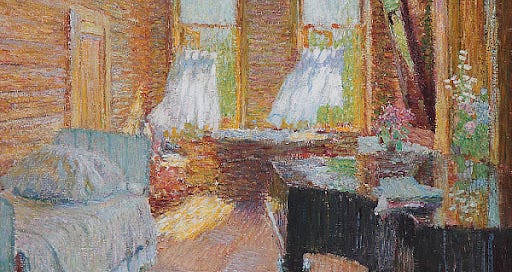Здравствуй.
Недавно я слушала1 одну из старых советских песен, которая всегда приводит в состояние2 задумчивости3, сплина, тоски. Сама по себе4, песня была написана в период перемен в жизни Бориса Пастернака, поэтому смятение5, чувство одиночества и, в некоторой степени, приближающейся6 радости. Как ты прочтёшь7 стихотворение, зависит от твоего настроения, если тебе неизвестна история. Но не о ней8 я расскажу тебе в этом письме, а коснусь грамматики9.
Сперва, послушай песню.
Now lets turn to the poem which starts with words refering to the gloomy moments in Pasternak’s life:
Никого не будет в доме,
Кроме сумерек.
If the English speakers say “there is no one”, the Russians say “there is no nobody” which does not make sense in English. The double negation has multiple meanings; one of which is to make the meaning more intense. However, what is the verb tense here? (see answer keys (1))
The second verse countines in the same conjugation as in the first sentence.
Только белых (a)мокрых комьев
Быстрый промельк маховой.
Только (b)крыши, снег и, (c)кроме
Крыш и снега, — никого. (see answer keys (2))
Look back, Никого… кроме сумерек… then what else? Only A, B, and and again the author repeats the construction — look at C... not a single living soul.
The ending in plural such as “-ых” means that it belongs to Genitive case; actually literally. I have already mentioned it in one of my newsletters that if object or phenomenon is a part of another, the conjugation case is Genitive.
И опять зачертит иней,
И опять завертит мной
Прошлогоднее унынье
И дела зимы иной, (see answer keys (3))
Я совсем завертелась в делах!
What do I mean?
I have been so busy lately! I have wrapped myself in layers of deeds.
In the poem Pasternak attests that melancholy casts its spell on the author.
…Ты, как будущность, войдёшь.
…Ты появишься у двери
What verb tense is used here? Ты что сделаешь? (see answer keys (4))
Я надеюсь, тебе понравилась мелодика песни. Микаэл Таривердиев10 считается одним из самых душевных11 и тёплых композиторов, чьи песни до сих пор любимы и популярны12 среди молодёжи, в том числе.
Eventually, storm and challenges pass away and the right people stay rooted by your side.
Until next time.
ANSWER KEYS
(1) simple future;
Translation: There'll be no one in the house
Save for twilight.
(2) Translation: Only flash-past of the wet white
Snowflake clusters, glimpsed and gone.
Only roofs and snows, and save for
Roofs and snow — no one at home.
(3) Translation: Once more, frost will trace its patterns,
I'll be haunted once again
By my last-year's melancholy,
By that other wintertime.
(4) future tense
слушала - (was) listening (to); услышала - heard
leads to a state of
reverie
On its own,
confusion
approaching
will have read
will touch upon grammar
soulful
songs have been loved and popular untill today




